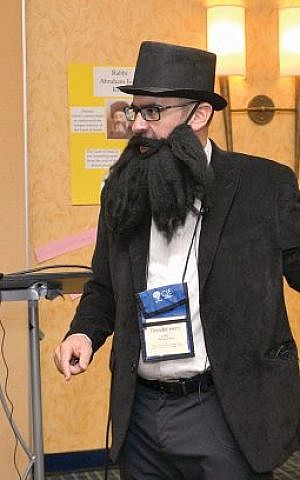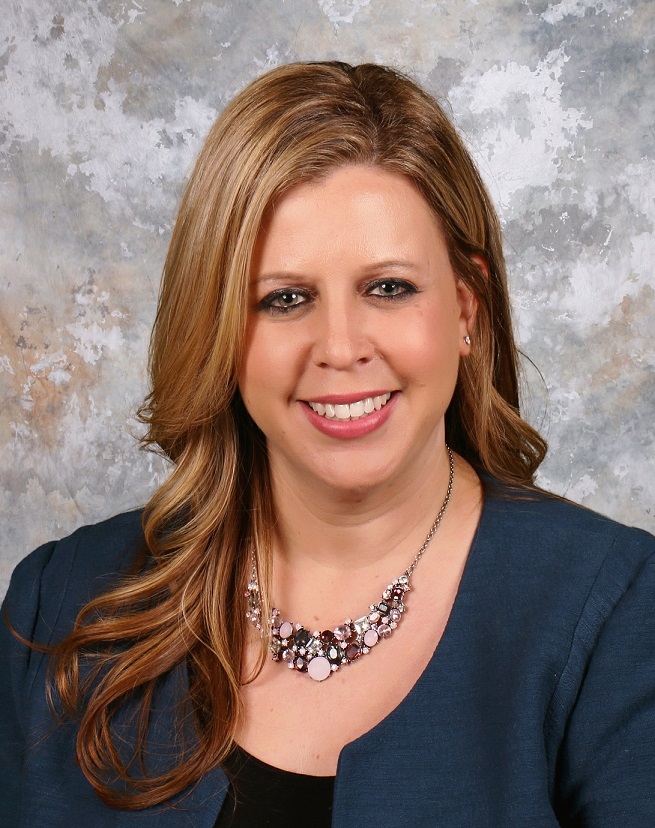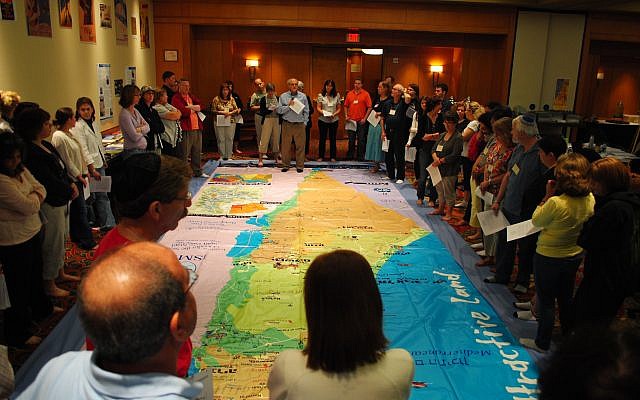CIE Builds Better Model of Israel Education
Nearly 1,000 educators have studied at the Center for Israel Education with professor Ken Stein.
The Atlanta-based Center for Israel Education, established in 2008, has influenced hundreds of thousands of Jewish students, adults and a large Spanish-reading audience. It draws 7,500 people a week to its website, www.israeled.org.
CIE, fully sustained by foundation and donation support, began with a simple request 20 years ago. Ken Stein, professor of Middle Eastern history and Israel studies, founded the Institute for the Study of Modern Israel (ismi.emory.edu) at Emory University in 1998 (the 20th anniversary is being celebrated Nov. 9-11).
The following year, teachers at Greenfield Hebrew Academy (now Atlanta Jewish Academy) sought his help to create a course on Zionism for seventh-graders.
After another school also expressed interest, Stein launched a two-day workshop for a dozen teachers, then offered it again and drew 25 educators. With funding from the parent of a former student, then from The AVI CHAI Foundation, the Israel enrichment workshop became a weeklong fixture for Jewish educators each summer and the core offering around which the nonprofit CIE grew.
“I believe it would be fair to say we built it, and they came,” said Stein, CIE’s president.

The center has an international reach, but its impact is particularly strong in its hometown. CIE led teen programs for BBYO and NFTY events, held pre-Israel trip seminars for seniors of The Weber School, conducted sessions at The Epstein School and AJA, saw 10 local schools use its Israel curriculum for second- to seventh graders, provided speakers at the Atlanta Jewish Film CIE Builds Better Model of Israel Education Festival and Book Festival of the MJCCA, and partnered with such organizations as Hadassah, American Jewish Committee, the Anti-Defamation League and the Jewish Federation of Greater Atlanta.
“The focus of CIE has always been content, context and perspective,” with an emphasis on primary sources, Stein said. The educator workshop has taught 993 educators from 36 states and six foreign countries since 2000.
Those educators represent 417 day schools, synagogue schools, teen programs and other organizations with a combined 375,000 Jewish students. Five day schools, 14 synagogues and three non-Jewish schools in metro Atlanta have participated.

Hope Chernak, the MJCCA’s chief program officer, said she “drank the Kool-Aid” on CIE’s approach while regularly attending the June educator workshop. She worked for Temple Shaaray Tefila in New York at that time and was part of the first group to complete CIE’s yearlong certificate program in Israel education in 2016.
“Educators sometimes get trapped where they’re responding to the news or responding to the politics of the day. The CIE model helps us move away from that,” Chernak said. “It’s just showing the different frameworks, the different lenses, the different ways to teach about Israel beyond the politics.”
AJA teacher Lisa Marks said, “As a history teacher, sometimes we give kids the pieces of the puzzle, but we never put the puzzle together for them. That’s what I think CIE does.”
She praised the way CIE makes connections to sources going back to Scripture and is always available to answer questions and provide support. For example, CIE Vice President Rich Walter came to AJA dressed as Theodor Herzl to talk about Zionism.
“CIE is this incredible resource that is there for you in so many ways,” Chernak said.
Rabbi Peter Berg, the senior rabbi of The Temple and a CIE board member, said Atlanta benefits from being home to CIE. For example, last year the center helped prepare high school juniors and seniors for the criticisms of Israel they might face in college.
“There’s a lot of misinformation about Israel. Different news outlets cover Israel in different ways, and there’s a lot of general lack of knowledge. One of the things CIE does is to teach the facts and to teach the truth,” he said. “It’s not a sermon.”
Dov Wilker, AJC Atlanta’s regional director, said his agency has maintained a close relationship with CIE. Most recently, the AJC turned to the center to strengthen its Leaders for Tomorrow program for high school sophomores and juniors.
“Through their extensive knowledge and work in education, CIE has helped to shape our program through primary source materials, which has helped all of the students,” Wilker said.
CIE makes primary sources, course materials, additional historical information, and links to other scholarship and analysis available on its website, whose traffic has grown the past two years from 400 to 7,500 visitors a week. Because many people want to view videos rather than read sources, CIE has developed online learning units, short videos and YouTube offerings. It also provides monthly webinars.
“We’ve shown people that you can gain excellent access to informed materials about Israel, do so at your pace and come back for more,” Stein said.




comments